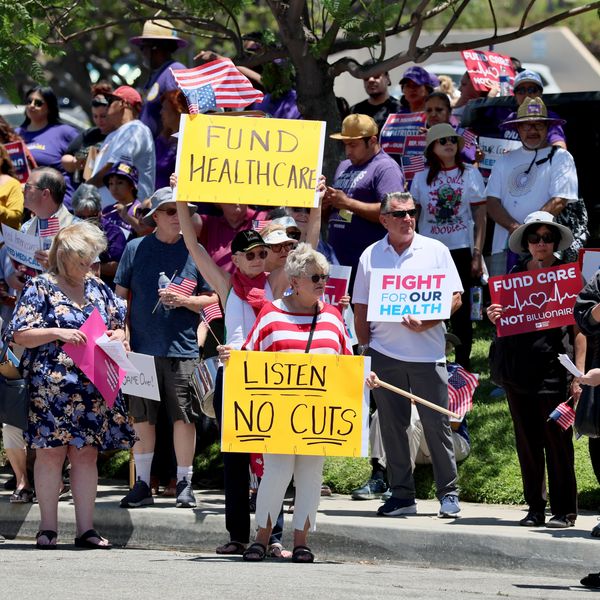An analysis of a
Medicare voucher plan generally based on the approach included in vice presidential candidate Paul Ryan's budget plan passed by the House earlier this year, says that at least 6 in 10 Medicare recipients would experience higher premiums if such a plan was enacted.
The report, released by the Kaiser Family Foundation on Monday, estimates that "Nearly six in 10 Medicare beneficiaries nationally could face higher premiums for Medicare benefits, assuming current plan preferences, including more than half of beneficiaries enrolled in traditional Medicare and almost nine in 10 Medicare Advantage enrollees."
The study found that some geographic areas would see larger cost increases than other, both across regions and within states. "At least nine in 10 Medicare beneficiaries in Connecticut, Florida, Massachusetts and New Jersey would face higher premiums in their current plan," said the report.
The Associated Press adds:
Like the Romney-Ryan plan, government health insurance payments for individual seniors would be tied to the cost of the second-lowest private insurance plan in their geographical area, or traditional Medicare, whichever is less expensive. Seniors could pick a private plan or a new public program modeled on traditional Medicare. But if their pick costs more than the government payment, they would have to pay the difference themselves.
Not surpisingly, the Romney campaign downplayed and criticized the report while the Obama campaign posted a link to the study on their website.
Kaiser's top Medicare expert, Tricia Neuman, told the AP the organization has been working on the report since the early part of the year, well before Romney picked Ryan as his running mate and cemented his support for the congressman's Medicare overhaul.
Regardless of the political disputes, as the report concludes, if Medicare was privatized there would be "increase costs and financial risks for beneficiaries over time."
# # #



